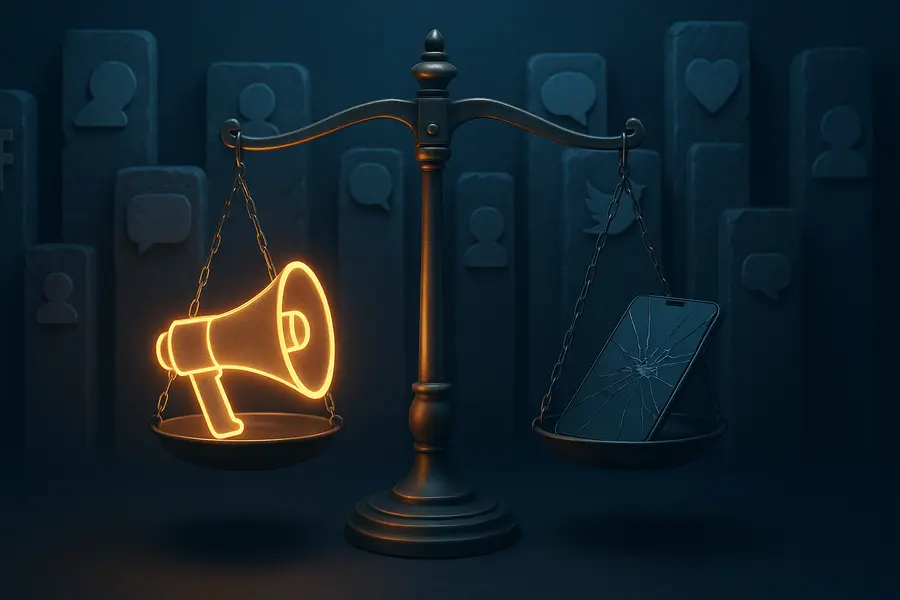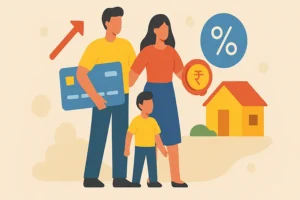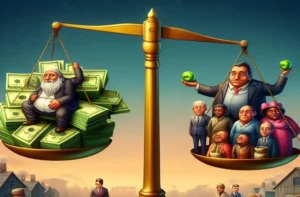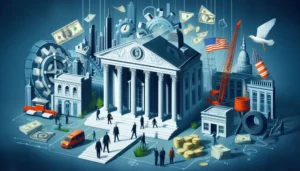How Cancel Culture reshapes social norms: Power for marginalized or toxic outrage? Dive into sociology’s view of digital justice trade-offs.
Cancel Culture and Social Norms: A Sociological Analysis
Ever felt that social media outrage moves faster than lightning? You’re not alone. Cancel culture—that whirlwind of public shaming and boycotts—has reshaped how we enforce social rules, turning Twitter threads into digital courtrooms. But is this digital accountability just mob justice, or a vital tool for the voiceless?
We’re diving deep into the sociology behind the hashtags. Forget hot takes—we’ll unpack how ancient practices like Greek ostracism evolved into today’s viral call-outs. You’ll see how marginalized voices gained power through movements like #MeToo, why free speech debates are heating up, and what happens when brands face the wrath of “woke” consumers.
This isn’t about picking sides. It’s about understanding why we cancel, who gets hurt, and whether society can find a better path forward. Ready to decode the drama? Let’s go.

Understanding the Sociology of Cancel Culture and Social Norms
Ever wondered why Cancel Culture sparks such heated debates? It’s all about social norms—unwritten rules shaping how we act and judge others.
Understand the Sociology of Cancel Culture and Social Norms. Dive into why people get “canceled,” how crowds enforce accountability, and what it means for society.
This blog article unpacks the power of public shaming, evolving values, and the clash between free speech and morality.
Curious? Let’s unravel the drama behind today’s social battles!
Historical Evolution of Cancel Culture
Cancel culture isn’t a new phenomenon—it’s a digital reboot of ancient social practices.
Historical precedents like Greek ostracism (exiling influential figures via public vote) and Roman damnatio memoriae (erasing individuals from public records) show societies have long used collective shaming to enforce norms.
The term “canceling” gained traction in 2010s Black Twitter, where users like those behind #MeToo and #BlackLivesMatter weaponized social media to challenge systemic racism and sexism.
This modern iteration amplifies marginalized voices but operates at viral speed, blurring lines between accountability and mob justice.
Unlike past boycotts, digital tools enable instant global participation, transforming local shaming into worldwide trends.
Understanding this evolution reveals “cancel culture” as society’s age-old immune response—just supercharged by technology.
Defining Modern Cancel Culture Dynamics
Modern cancel culture blends public shaming, economic boycotts, and digital activism.
Academics define it as the collective withdrawal of support—financial, social, or professional—from individuals or brands violating social norms.
Key elements include:
- Public denunciation via social media
- Demands for consequences (e.g., job loss, deplatforming)
- Moral positioning, often framed as social justice.
Unlike simple criticism, cancel culture aims to inflict tangible damage, like reputational harm or career termination.
It’s frequently conflated with “call-out culture” or “wokeness,” but differs in scale and intent. Where call-outs seek dialogue, cancellations seek punishment. This conflation fuels debates: Is it a tool for the voiceless or a vector for intolerance?
Social Justice and Marginalized Voices
Cancel culture often serves as a megaphone for marginalized groups historically ignored by traditional justice systems.
The #MeToo movement exemplifies this, enabling survivors to expose predators like Harvey Weinstein after decades of institutional silence.
Similarly, #BlackLivesMatter leveraged digital outrage to mobilize 15–26 million people globally against police brutality in 2020.
For minorities, canceling is an act of radical agency—bypassing gatekeepers to demand accountability directly.
As linguist Anne Charity Hudley notes, it lets individuals “exert power beyond measure” without waiting for systemic change.
Yet critiques argue it sometimes prioritizes performative outrage over structural reform, leaving power imbalances intact.
Free Speech Chilling Effects
A major critique of cancel culture is its chilling effect on free expression.
Critics argue it fosters self-censorship, as people fear viral backlash for unpopular opinions.
High-profile examples include the 2020 “Harper’s Letter,” where 153 writers (including J.K. Rowling) warned that Cancel Culture stifles open debate.
The spiral of silence theory explains this: individuals suppress minority views to avoid social exclusion.
Pope Francis and Barack Obama have criticized the trend as “ideological colonization” and counterproductive to discourse.
Yet defenders counter that it merely makes bigotry socially costly—a necessary check on hate speech.
The tension lies between protecting speech and preventing harm, with digital platforms amplifying both concerns.
Consumer Power Dynamics
Cancel culture has reshaped brand-consumer relationships, turning customers into moral auditors.
Studies distinguish boycotts (temporary protests seeking change) from cancellations (permanent withdrawals over “irreparable” transgressions.
. For instance:
- Dolce & Gabbana lost $2 million days after racist ads sparked #BoycottDolce backlash.
- Aunt Jemima and Uncle Ben’s rebranded after being deemed racial stereotypes.
Unlike boycotts, cancellations focus on virtue signaling—publicly aligning with ethical values—rather than redeemability.
Brands now navigate minefields where past missteps resurface virally, forcing constant “social responsibility” performances.
Psychological Toll on Targets
Being canceled inflicts profound psychological harm, including anxiety, depression, and reputational ruin.
Research notes it triggers “spoiled identity”—a perception that one is irredeemably tainted.
Public figures like comedian Louis C.K. faced career collapse after misconduct allegations, despite later Grammy wins.
Everyday individuals suffer too, like PR executive Justine Sacco, fired over an AIDS joke tweeted pre-flight.
The anonymity of online mobs intensifies the trauma, with doxxing and threats compounding shame.
Critics argue this denies due process, punishing alleged offenses without evidence.
As UCF’s Stacey DiLiberto notes, digital shaming often lacks nuance, ignoring context or growth.
Accountability vs. Punishment Debate
Is cancel culture about justice or vengeance? Proponents see it as vital accountability for the powerful, citing figures like Bill Cosby, convicted after social media pressure.
Conversely, critics call it disproportionate punishment—a “slippery slope” where minor missteps destroy lives.
For example:
- R. Kelly’s streams surged 126% amid #MuteRKelly calls, undermining the campaign.
- Amy Cooper (Central Park caller) was fired and charged, yet racist incidents persisted.
The line blurs when cancellations ignore apologies or context. Philosopher Martha Nussbaum argues effective shaming requires redemption paths, absent in today’s “mob justice” .
Digital Age Amplification
Social media transforms local shaming into global firestorms. Platforms like Twitter enable instant outrage scaling, where a single tweet can mobilize millions.
This democratizes accountability—e.g., #MeToo reached 85 countries—but also fuels hair-trigger judgments.
The 24-hour news cycle magnifies controversies, while algorithms prioritize inflammatory content.
UCF’s Amanda Koontz notes this flattens complexity: “Cancel culture is ‘You’re all good, or you’re all bad’”.
Unlike pre-digital shaming (e.g., Puritan stocks), online attacks lack community ties or off-ramps, making reconciliation harder.
Legal and Policy Implications
Cancel culture poses novel legal challenges, including defamation, employment law, and free speech.
Indonesia’s 2023 study found canceled individuals (e.g., Ahmad Dhani) could sue for reputational damages.
Constitutional rights are also tested when cancellations de facto censor voices. Solutions proposed include:
- Anti-cyberbullying laws
- Social media accountability frameworks
- Affirmative policies protecting marginalized groups.
Eugene Scalia (ex-U.S. Labor Secretary) contends cancel culture is protected speech but may undermine legal rights like counsel if lawyers fear backlash.
Path Forward: Dialogue Over Destruction
Moving beyond punitive cancel culture requires emphasizing education and growth.
As writer Alexandra D’Amour argues, criticizing allies stifles progress; instead, we must “shift relationships with criticism”.
Models like restorative justice—prioritizing dialogue over exclusion—offer alternatives.
Celebrities like Jameela Jamil model this, calling herself a “feminist-in-progress” to normalize learning.
Platforms can help by designing for contextual understanding (e.g., attaching apologies to old posts) and algorithmic transparency.
Ultimately, balancing accountability with empathy may foster a culture where mistakes fuel growth, not cancellation.
Read Here: The Role of Mass Media in Shaping Public Perceptions
Conclusion: The Double-Edged Sword of Digital Justice
Cancel culture shows our struggle to enforce fairness in a hyper-connected world. It’s powerful: marginalized voices finally get heard, holding the powerful accountable like never before. But it’s also perilous—what starts as justice can spiral into digital mobs destroying lives over single mistakes.
The internet blurs the line between calling out harm and causing harm. Viral outrage often skips nuance and context, leaving little room for growth or apology.
We can’t simply end “canceling”—it’s rooted in valid demands for equity. Instead, we must humanize the process.
Imagine replacing pile-ons with restorative conversations. Or trading permanent exile for paths to earn redemption. This shift demands empathy from all sides: critics, platforms, and canceled individuals alike. Only by balancing accountability with compassion can digital justice truly build a fairer society—not just perform one.
Author:
Mahtab Alam Quddusi – A Passionate Writer, Social Activist, Postgraduate in Sociology and Social sciences and Editor of The Scientific World.





